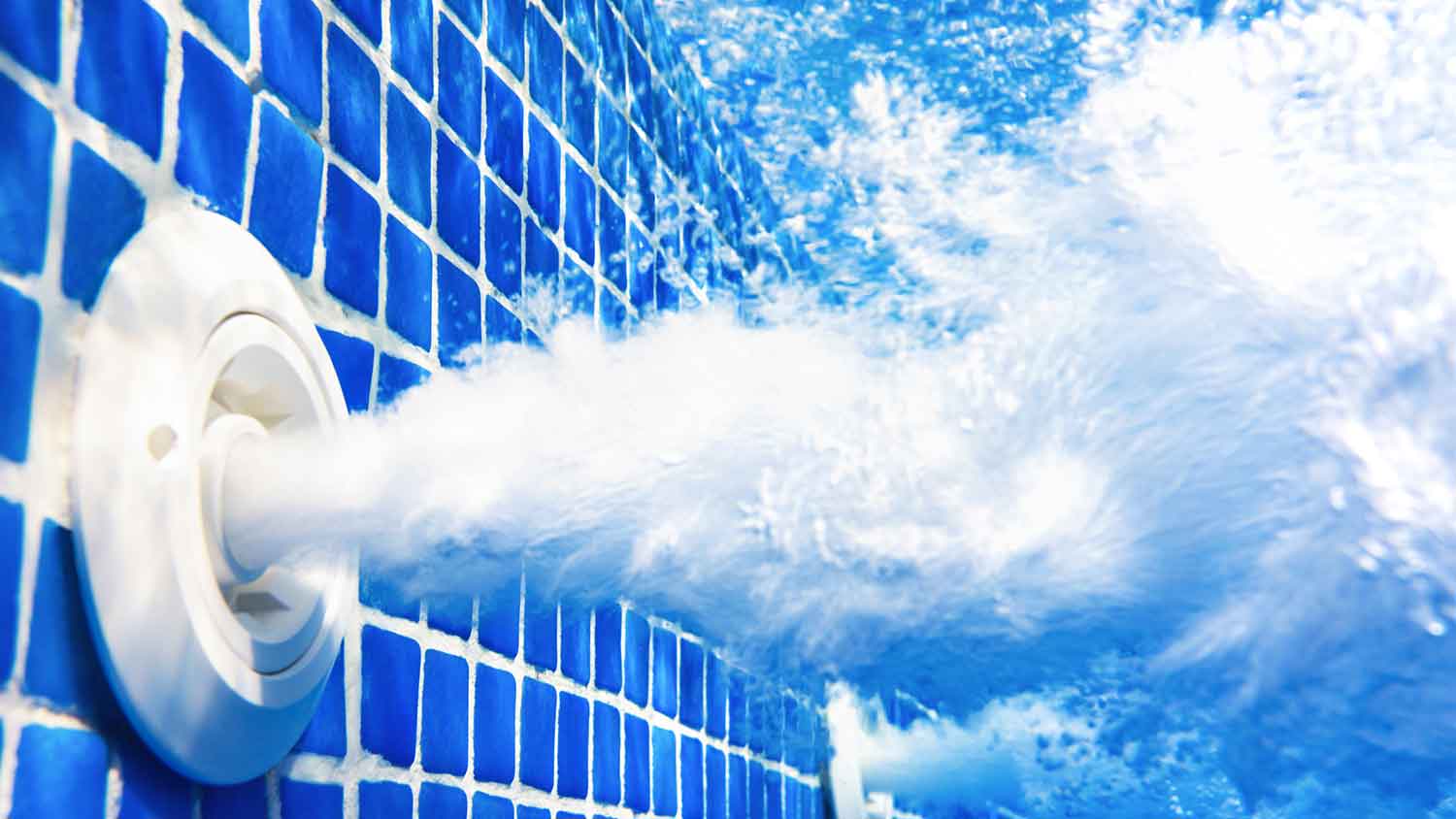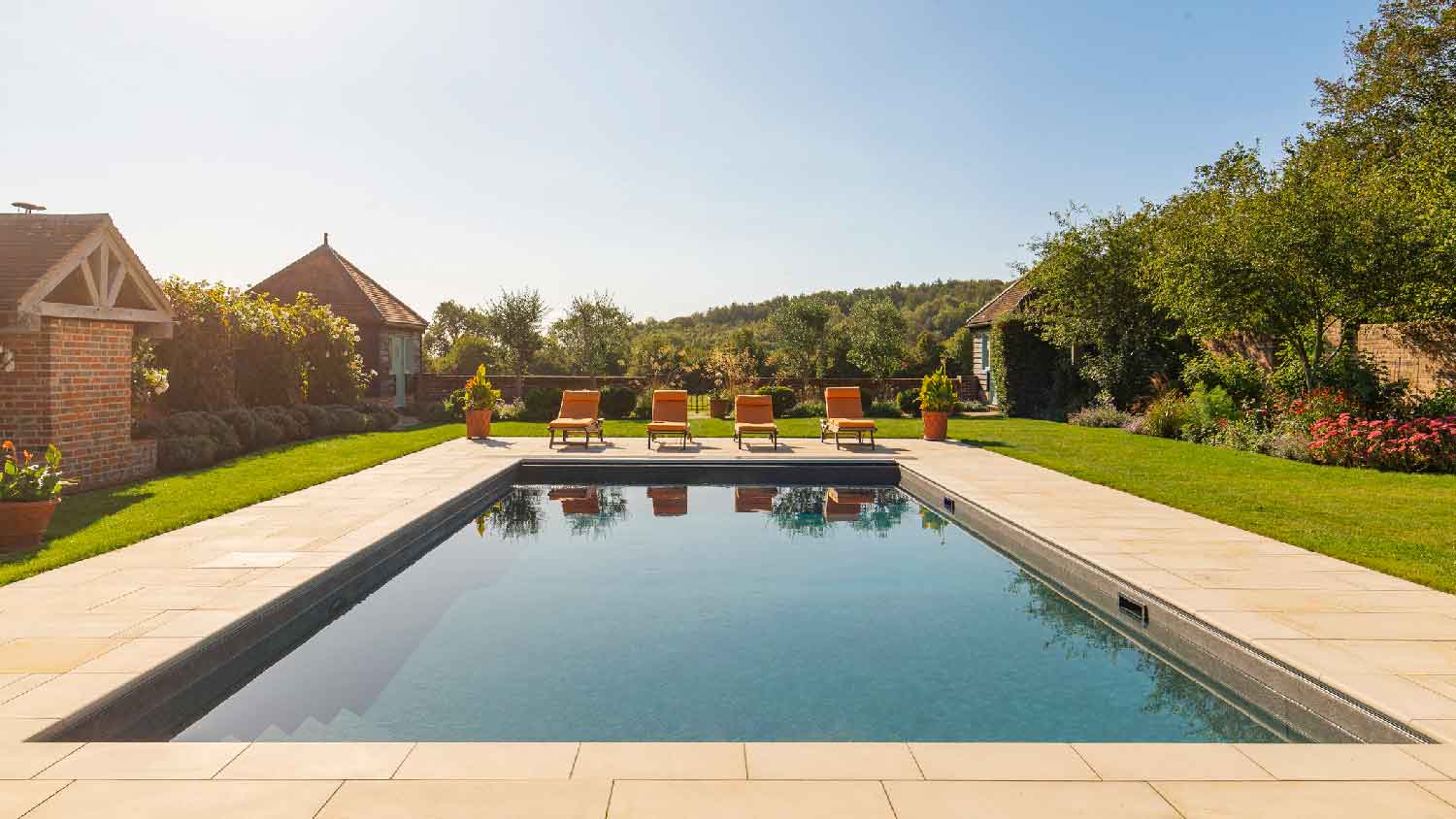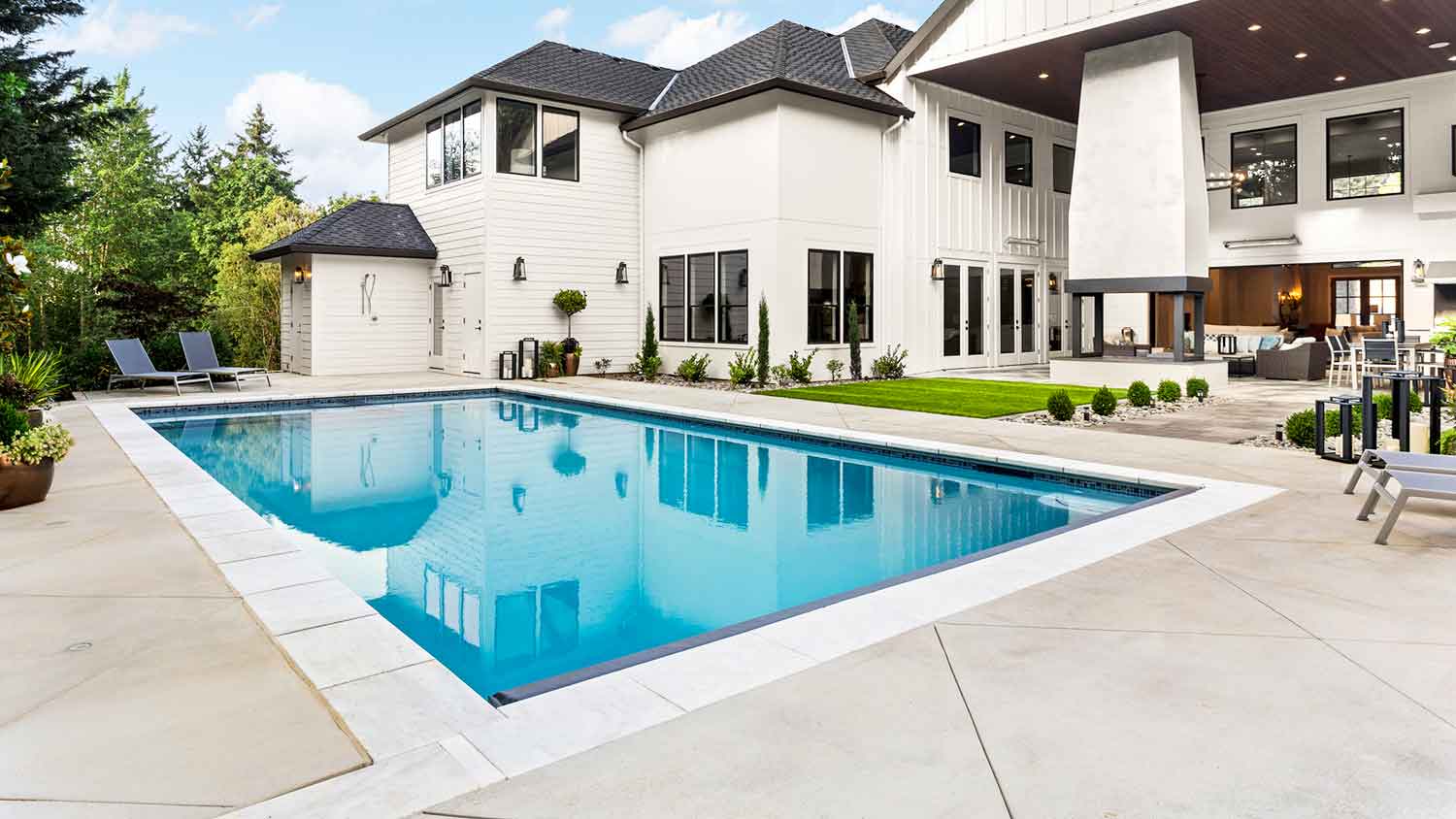Why is My Pool Pump Losing Prime? 4 Possible Reasons and Solutions
Find out why your pump is feeling drained—and how to fix it
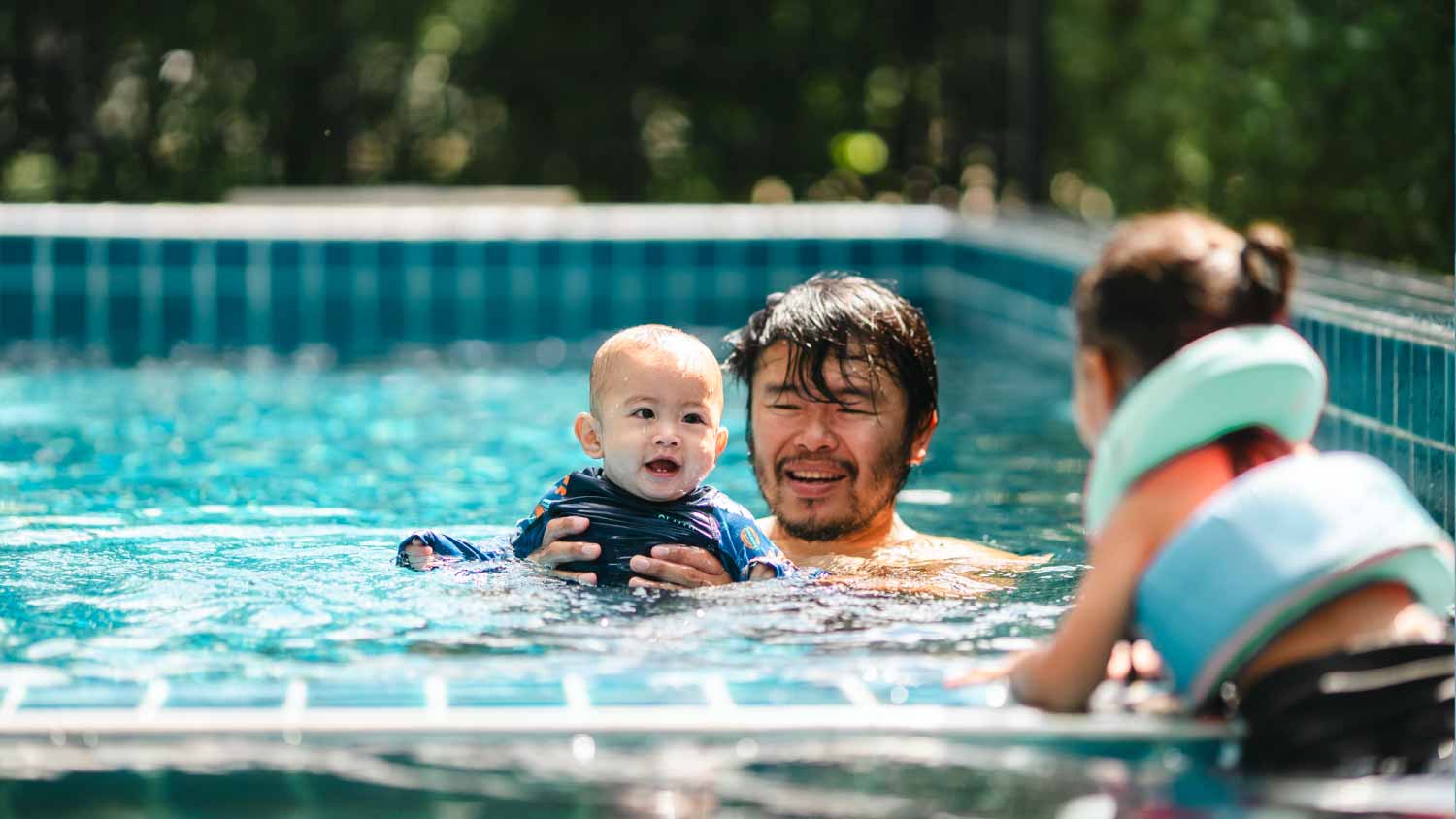

Air leaks are the top reason your pool pump is losing prime.
Other culprits include low water levels and a faulty valve.
Your local pool repair specialist can help identify the problem.
You should call a pro if you notice any broken or worn parts.
Your pool pump’s prime is key to filtering water properly, which is why losing prime can result in murky water—and leave you high and dry. Several issues could be causing this circulation problem, including low water levels, leaks, and lack of water flow. Let’s dive into the reasons your pool pump is losing prime and how to get your pump back on track so you can swim your cares away.
1. Air Leaks
Chances are, your pool pump is losing prime due to air leaks in the suction line. This is where the pump draws water and could result from a loose or cracked fitting, a busted O-ring, or a leaky pipe.
How to Fix It
Turn off the pump and cut the power, then inspect the skimmer to ensure it’s fully submerged. Clean the pump basket, then check for cracks or damage in the lid. If the O-ring is in good condition, you may want to lubricate it to seal it and prevent leaks. Check fittings to make sure connections are secure in the suction line leading to the pump. If none of the above solves your prime issue, it’s best to call in an expert.
2. Low Water Levels
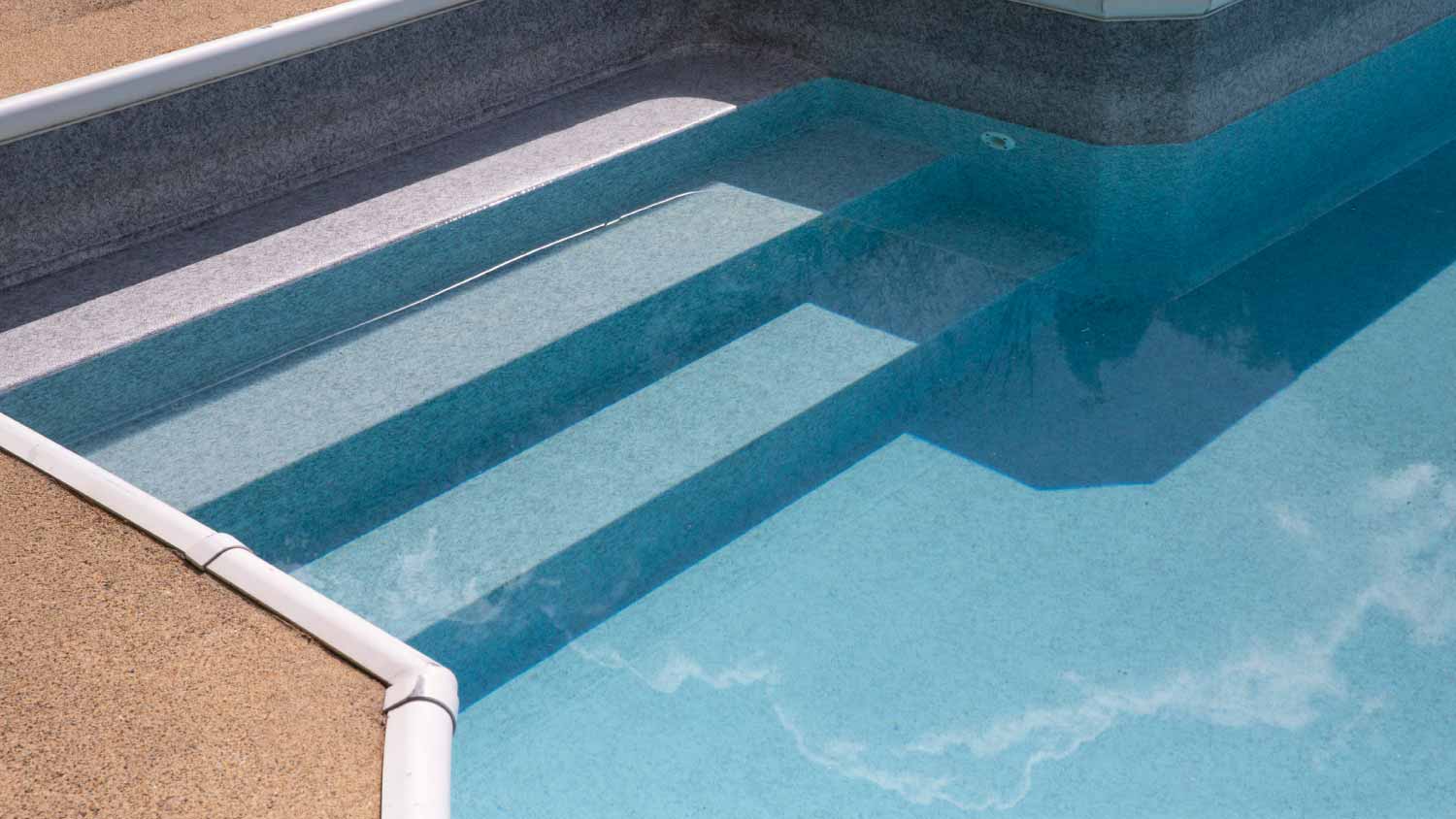
Though it may look fine, your pool’s water level could be low enough to keep your pump from drawing water in, causing it to lose prime. This is especially true if the pump’s skimmer isn’t submerged enough—the water level in your pool should be around halfway up the skimmer opening.
How to Fix It
Monitor your pool’s water level in particularly dry seasons to ensure it has enough water. If it’s below halfway of the skimmer opening, it’s too low. You’ll need to either fill your pool with more water from a hose or have your local pool repair company come fill it up for you.
3. Clogged Parts
Outdoor pools can frequently become filled with debris, especially when surrounded by trees or if you live in a climate conducive to heavy storms. That excess debris can fill your skimmer, pump basket, and pool filter to the point that it restricts water flow and keeps your pump from maintaining its prime.
How to Fix It
Clean your pool (or have it cleaned) regularly, even daily, especially if it’s prone to debris from trees or other outdoor elements. If you have the time and tools, this is a fairly simple DIY, but you can also hire pool cleaning companies to maintain your pool in busy and off-seasons. The cost to maintain your pool ranges from $116 to $353 per cleaning, but you can have a few pros provide an estimate for more accurate pricing.
4. Faulty Valve
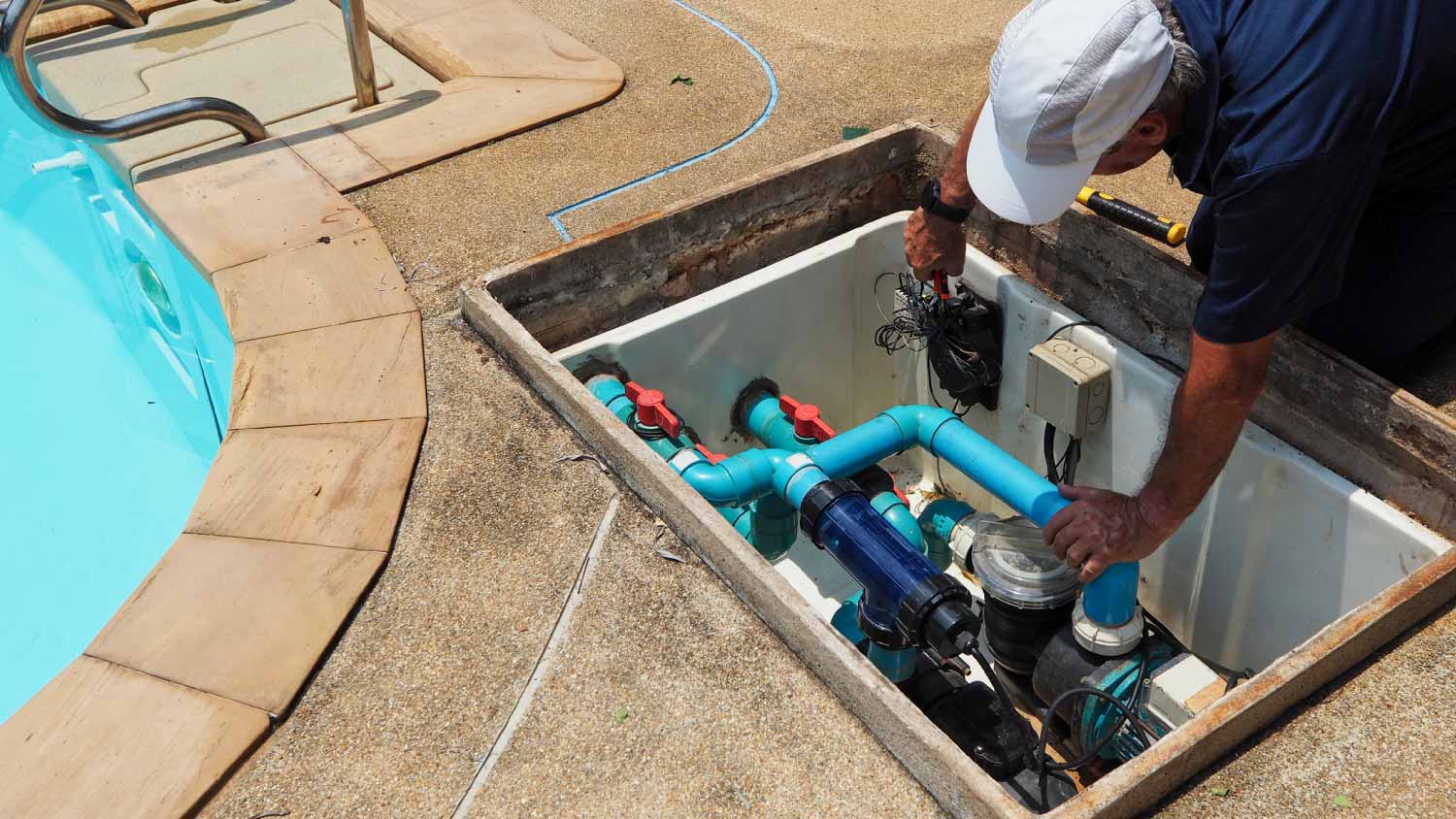
Your pump’s check valve prevents water from flowing backward, which is why any fault in the valve can result in loss of prime. If your pump’s valve isn’t sealed correctly, it can introduce air into the system and lead to water that’s less than clean—and not safe to swim in.
How to Fix It
Identify the specific issue with the valve, whether it’s a leak, air entering the system, or a broken valve. Next, turn off the pump and inspect the valve O-rings if you suspect a leak. The O-rings will need to be replaced if they are worn or cracked. A broken valve will need to be replaced; you can do this by removing the current valve with a wrench and installing a new one. If air leaks are to blame, you may need to replace the seals or gaskets.
When to Call a Pro
Pool problems are no joke—especially when they prevent you from getting relief from the heat. If you’ve tried to troubleshoot your pool pump with no luck or suspect the issue is one you can’t tackle with a little DIY, it’s time to call a professional pool repair service. They can inspect your pool and its pump and provide a plan to keep the pump’s prime in place.
Frequently Asked Questions
Most pool pumps have a lifespan of about 8 to 12 years, depending on how often they’re used and how well they’re maintained. Regular pool use can shorten a pump’s life expectancy, as can a lack of cleaning or regular maintenance. Cleaning the pump basket often and checking for leaks can help extend the life of your pool pump.
Pool pumps should work discreetly and quietly. If you hear loud screeching or grinding sounds from your pool pump, it’s a good indication that its motor is starting to fail and may need replacing.



